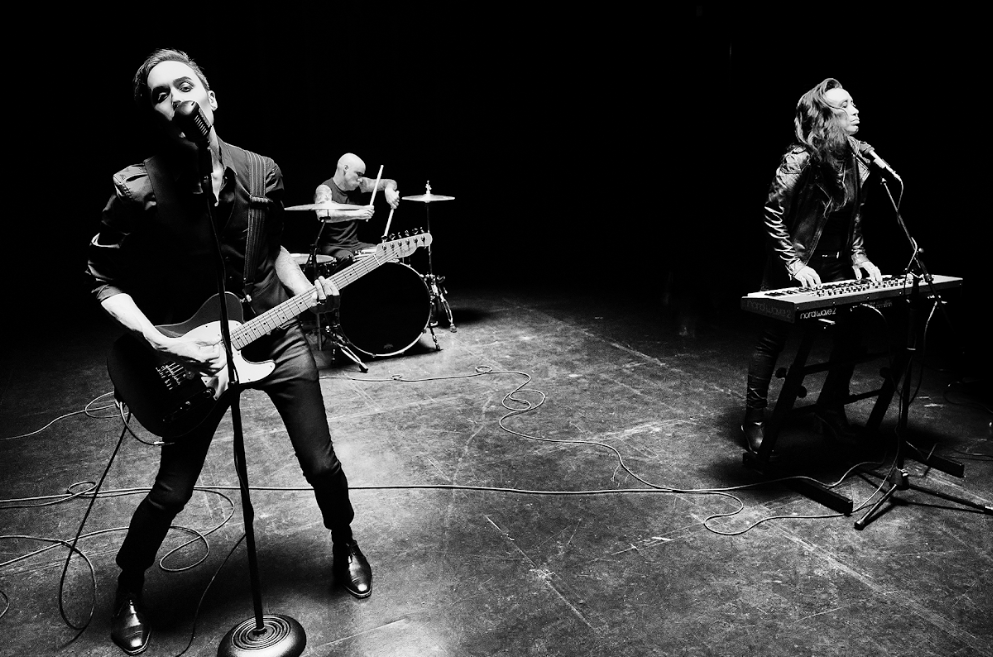We Speak Music
D. Green Shares New Single ‘Made for Loving’
Hailing from the vibrant streets of New York City and currently making waves in the creative landscape of Los Angeles, D. Green is a versatile songwriter, producer, and recording artist.
D. Green has established a successful career for himself in the music business. His music skillfully combines the vibrant spirit of his upbringing in New York City with the varied atmosphere of the West Coast. He’s already put out several well-received projects and EPs, and industry heavyweights are taking notice of his musical abilities. Collaborations with well-known performers like DJ Green Lantern and Skyzoo, in addition to sharing a stage with J. Cole, highlight the artist’s ascent to fame.
He returns with his latest single ‘Made for Loving’. The genre-blend of funk, soul, and R&B tune used an uplifting and groovy mix of funky bass, rhythmic guitars, keys, drums, and vocals in the production.
‘Made for Loving’ was the result of an introspective journey into the core of D. Green’s heart, during which he considered the meaning of love in his life. The practice of offering, receiving, and all the wonderful, messy moments that occur in between. It dawned on him that for love to be truly meaningful, it must align with the love that you possess for yourself. To truly express who you are with the world, it is important to embrace every aspect of who you are, both inside and out.
D. Green’s ‘Made for Loving’ is an open-minded exploration of the unvarnished, flawed beauty of self-love. He hopes it speaks to anyone who is walking the fine line between self-discovery and love.
On the song, D. Green says, “‘Made for Loving’ was like a heart-to-heart with myself. I’ve been on this quest, decoding what love means today. It’s about giving, receiving, messy, beautiful – and it starts with being in tune with the love you’ve got for yourself. It’s the raw, imperfect anthem to self-love.”
‘Made for Loving’ showcases D. Green’s musical prowess while highlighting his authenticity, passion, and commitment to artistic evolution. His artistry shines through his latest release complimenting his entire music discography to date.
We Speak Music
Holy Death Temple ‘Survey Says’ – goth dance punk that refuses to sit still

Holy Death Temple’s new single, “Survey Says,” is a sweaty, synth-fueled shot of goth dance punk that refuses to sit still — or be polite. This trio has mastered the art of turning social collapse into a full-on party, blending brooding post-punk vocals with wild guitars and huge synth hooks that dare you to dance while the world burns. With an attitude that’s part despair, part defiant rage, this track is a blistering call to arms and the soundtrack to the inevitable chaos.
Bryan Edward’s vocal delivery captures that classic post-punk gloom with a punk sneer that never lets up. Lyrically, the song pulls no punches, using the metaphor of a rigged game show to highlight how media and politics exploit division for profit, all while pretending to care. “We’re fucked. Let’s party.” sums up the spirit — a perfect mix of nihilism and catharsis that lets you scream, dance, and rage in equal measure.
What really sets “Survey Says” apart is the band’s sound design. By swapping out the usual bass guitar for a brutal low-end synth, they create space for surgical guitars and pounding drums to collide with Amy Tung-Barrysmith’s eerie synth melodies. The rhythm section, powered by members of doom duo Year of the Cobra, injects an urgent, tightly coiled energy that keeps the track moving like a clenched fist on the dancefloor.
The cover art drives the message home — a twisted Eye of Providence staring back at the broken American dream, a perfect visual representation of the song’s critique of power, illusion, and collapse. The whole package is raw, intelligent, and infectious, proving Holy Death Temple are carving out a unique space between goth gloom and punk fire.
“Survey Says” isn’t just another single — it’s a savage party in the face of doom, a brutal celebration of frustration and fury. Holy Death Temple is here to make sure the dancefloor stays alive even as everything falls apart.
-

 We Speak Soccer1 week ago
We Speak Soccer1 week agoNo Entry Allowed: How Austin Fortner Is Becoming a Standout Keeper with Confidence and Control
-

 We Speak Soccer5 days ago
We Speak Soccer5 days agoFrom Small Steps to Big Goals: How Alianna-Reyne Basa Became a Fearless Striker with a Champion’s Heart
-

 We Speak Music7 days ago
We Speak Music7 days agoSinger/Songwriter Aro Rose To Release Highly Anticipated New Single “Live Without You” On June 29th, 2025
-

 We Speak Soccer1 week ago
We Speak Soccer1 week agoBrylee Tagle: Crafting Excellence on the Soccer Field with Vision, Confidence, and a Passion for the Game

